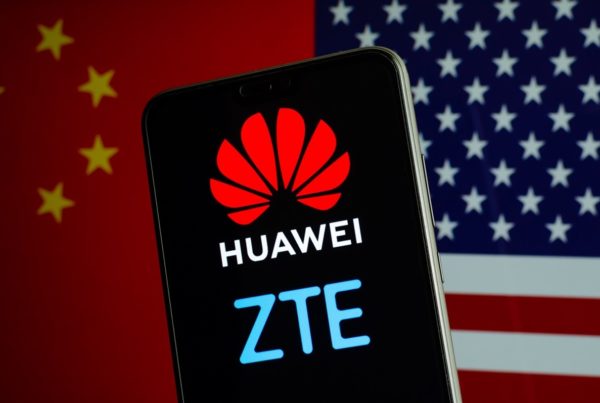Making digital European infrastructures in step with technological innovation, improving connectivity and making it easily accessible to European citizens are the key factors which led to the so-called White Paper on “how to master digital infrastructures’ needs in the Old Continent”. The paper has been recently published by the European Commission which analyzes the potential challenges that Europe should face while implementing new networks. In the public statement announcing its release, the EU Commission has stated as follows: “a faster, safer and more widespread connectivity is needed to implement tomorrow’s technologies: telemedicine, automated driving, predictive maintenance of buildings or more sophisticated agriculture.”
The document, on which Brussels wants to gather stakeholders’ opinions by next June 30, defines the many challenges that TLC industry must face during this technological transition: more investments, lack of single markets for TLC, lack of fair and equal conditions, dependence, fragmented approach to radio spectrum management, need to boost innovation and industrial capacity across TLC industry, sustainability, and safety. According to Margrethe Vestager, executive vice president of the European Commission: “the UE needs to do more to support mobile operators and TLC market and it, thus, needs more investments.” She went on saying: “the sector suffers from fragmentation and from the lack of a single market, and this fragmentation represents a missed economic opportunity.” Therefore, according to Brussels, there is a need to “establish a single telecommunications market.”
 Technological convergence and the implementation of 3C networks
Technological convergence and the implementation of 3C networks
The White Paper, examining 12 different topics, is particularly important for TLC industry as it delves deeply into the potential technological convergence between telecommunications and cloud systems, underscoring the importance of implementing a unified digital market and it advocates for equal and fair conditions for multiple operators. The hypothesis of a share to be attributed to Big Tech for using networks is being issued and analyzed. The document focuses on creating a Connected-Collaborative-Computing network (3C network) to foster innovation. More specifically, this network represents the future ecosystem covering the entire continuum of computing, from semiconductors and radio technologies to connectivity infrastructure, data management, and applications. To do so, the Commission is considering the possibility of proposing large-scale pilot projects that establish integrated infrastructures and end-to-end platforms, bringing together different stakeholders from various fields of the connectivity chain. These pilot projects and infrastructures will be used to test innovative applications and technologies (such as tests, conceptual validations, and early deployment of technologies). They might be linked, if needed, to the European network of competence centers in semiconductor technology, which are maximizing synergies with European hubs of digital innovation. Initial pilot projects could focus on 5G corridors, e-health, and smart communities.
 Big Tech: fee for implementing and using new networks
Big Tech: fee for implementing and using new networks
The White Paper strongly highlights the issue of fair access to networks; with this respect, the EU executive, as stated in the document “might consider implementing the scope of current telecommunications’ regulations” to allow both stakeholders and customers of digital networks to get equal access to them. Considering the potential impact on global scope and the impact on technological developments and regulations, the EU Commission states that “before making any edits to the current regulations, potential economic impacts on people should be widely discussed with all involved parties.” The idea is to force Big Tech to pay fee for using networks. According to the European Union, by 2030, an additional investment of 174 billion euros will be needed to succeed in developing faster, safer, and greater networks. Even though “telecommunications industry has improved connectivity, costs have increased as well due to an average annual traffic increase of 20/30%.”
In the Commission proposals, the development and implementation of future networks should be supported by companies that have been leading the way in terms of technological infrastructure.
Creating a unified digital market
Furthermore, the White Paper focuses on creating a unified digital market for the telecommunications industry, implementing a fair access to new infrastructures; in this case, Brussels’ indication stems from the technological convergence between telecommunications and cloud services, which are subject to different regulatory frameworks.
The envisaged solution involves moving towards a more harmonized approach to telecommunications operators’ authorization procedures, a more integrated Union-level governance, and potential changes to wholesale access policy. To further accelerate the strategy, the EU Commission may also consider measures to expedite the switch-off of copper by 2030.
Which are the potential benefits for EU citizens?
These initiatives could allow EU citizens to benefit from significant changes: beyond improving connectivity speed, coverage and safety, a better and shared connection could determine the following:
- more power-efficient and safer workplaces, using smart grids and sensors within buildings to enhance resource use;
- cheaper and cleaner public transport thanks to an interconnected and automated mobility enabled by 5G, which will improve road safety and traffic while reducing CO2 emissions;
- a more efficient healthcare system with personalized medicine recommendations;
- as supercomputers can easily access data, a faster development of drugs and an easier monitoring of patients through the telemedicine;
- an intersectoral reduction of environmental influence in the digital environment which will, then, lead to a more sustainable and greener planet.
EU Telco policies are going in the right direction
Brussels’ initiatives for digital infrastructures have been approved by European Telco. Etno, the company representing the most important European TLC operators, has positively commented on the Commission’s proposal defining it as “aimed to implement investments and foster modern innovation.” More specially, European telco agrees with the Commission about the need of diversifying connectivity ecosystem “through a radical change in investments which must be enabled by changing and implementing EU regulations and policies.” In view of Gigabit infrastructures, 5G networks, cloud and AI driven networks, European telecommunications and competition policies should adapt to the new scenario. In this context, Telcos welcome “the sharing approach as an essential enabling factor: in a world defined by software and cloud systems, the current levels of market fragmentation are simply opposed to European strategic interests.” We really appreciate the efforts of European Telco policies in striving to achieve multiple socio-economic goals, like sustainability, industrial competitiveness, and economic safety. Furthermore, we really appreciate its efforts in defining tech companies’ role and responsibilities in terms of connectivity.
 Telco priorities
Telco priorities
Etno is ready to make its contribution in public consultation by setting multiple priorities: the establishment of a law to implement TLC investments capable of giving investors an ambitious and understandable signal of clear discontinuity compared to the past. Another relevant solution would be the adoption of measures aimed to edit merger policies at European level as only a strong cooperation and consolidation between mobile operators could, subsequently, provide cohesion to European stakeholders. Furthermore, a more efficient and concrete harmonization in the TLC industry should be implemented so that consumers regulations, policies on data and safety can contribute to create a unified TLC market.
Etno also emphasizes the opportunity to introduce measures that acknowledge the role of technology companies in connectivity to create fairer systems. Finally, for Telcos, it is essential to launch a forward-thinking industrial policy, with adequate funding and large-scale implementation, throughout the European Union to ease the creation of a European system for strategic and innovative technologies, such as edge cloud and Open Ra.
Final thoughts
The European Commission proposal focuses on how important it is to implement technological infrastructures and networks at European level guaranteeing people a faster connection. With this respect, the Commission has also promoted lots of initiatives and projects involving the allocation of public and private investments to encourage the promotion and innovation in strategic technological fields, like Chip company or IPCEI – Next generation could service and infrastructures. In addition to that, the Commission has launched the join initiative “Reti e servizi intelligenti” (impresa commune SNS), with EU 900 million euros fundings, which both performs 5 and 6G networks’ research and innovation activities and promotes the European leadership in tomorrow’s networks. Nonetheless, it is still unclear when it will happen: this is because there might be the chance that, despite hard work and efforts, the consultation and implementation could take too long and they could lead to process intensification.





